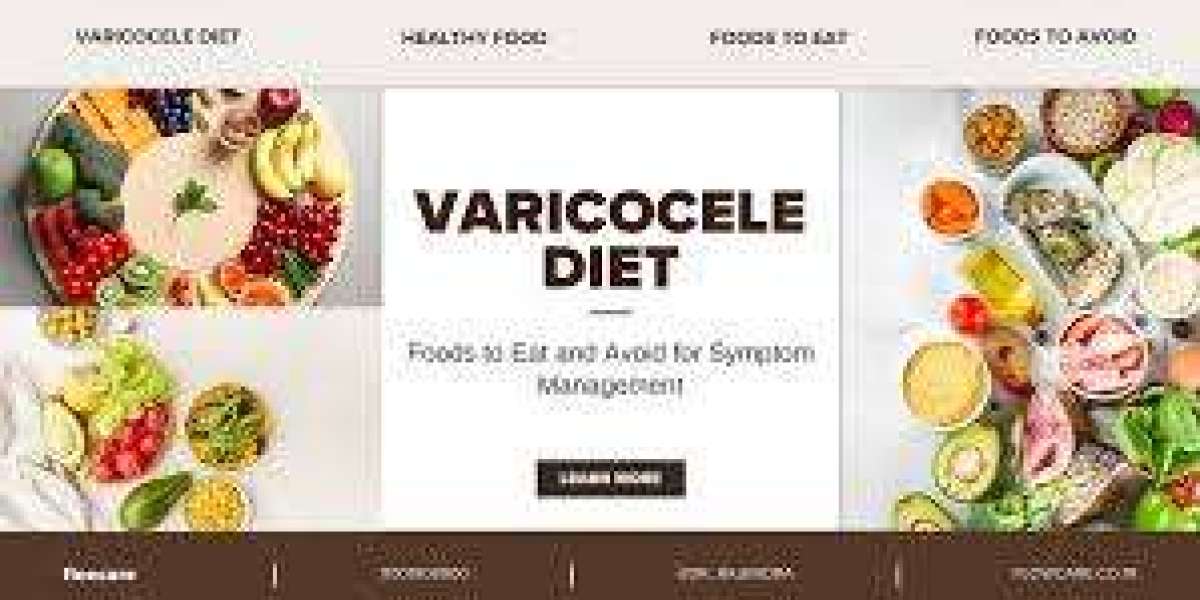Introduction
Varicocele is a condition characterized by enlarged veins in the scrotum, often leading to discomfort, infertility, and poor testicular function. While medical treatments exist, dietary modifications can play a crucial role in alleviating symptoms and improving vascular health. A well-balanced varicocele diet can support blood circulation, reduce inflammation, and prevent the worsening of the condition. This article explores the best foods to include and avoid for optimal varicocele management.
The Role of Diet in Managing Varicocele
Diet plays a significant role in maintaining vascular health. Poor dietary habits can contribute to inflammation, poor blood circulation, and oxidative stress, worsening varicocele symptoms. On the other hand, a nutrient-rich diet helps strengthen blood vessels, reduce swelling, and enhance overall testicular function.
Key Nutrients for Varicocele Management
To manage varicocele effectively, focus on foods that provide the following nutrients:
Antioxidants: Reduce oxidative stress and improve vein health.
Omega-3 Fatty Acids: Help reduce inflammation and enhance circulation.
Fiber: Prevents constipation, which can increase pressure on veins.
Magnesium: Supports blood flow and vascular function.
Vitamin C & E: Strengthen blood vessels and improve sperm quality.
Best Foods for a Varicocele Diet
1. Leafy Greens
Spinach, kale, and Swiss chard are packed with antioxidants, vitamins, and minerals that support healthy veins.
2. Berries
Blueberries, strawberries, and raspberries are rich in flavonoids and antioxidants that help reduce oxidative stress and inflammation.
3. Nuts and Seeds
Almonds, walnuts, chia seeds, and flaxseeds provide omega-3 fatty acids and vitamin E, which support vascular health.
4. Fatty Fish
Salmon, mackerel, and sardines are excellent sources of omega-3 fatty acids that improve circulation and reduce inflammation.
5. Citrus Fruits
Oranges, lemons, and grapefruits contain vitamin C, which strengthens blood vessels and improves collagen production.
6. Whole Grains
Oats, quinoa, and brown rice are fiber-rich foods that prevent constipation and improve blood circulation.
7. Dark Chocolate
High-quality dark chocolate contains flavonoids that help lower blood pressure and improve circulation.
8. Garlic and Onions
Both foods have anti-inflammatory and blood-thinning properties that promote vascular health.
Foods to Avoid for Varicocele Management
Certain foods can exacerbate varicocele symptoms by increasing inflammation, reducing circulation, or leading to constipation. Avoid the following:
1. Processed Foods
Fast food, canned meals, and frozen processed foods contain preservatives and unhealthy fats that contribute to inflammation.
2. Sugary Beverages
Soda, energy drinks, and excessive fruit juices spike blood sugar levels, leading to oxidative stress.
3. Excessive Red Meat
High consumption of red meat increases cholesterol levels, which can negatively impact blood flow.
4. Salty Foods
Excess sodium can lead to water retention and increased pressure on veins.
5. Alcohol and Caffeine
Both can dehydrate the body and negatively impact vascular health.
6. Refined Carbohydrates
White bread, pastries, and sugary cereals contribute to poor digestion and blood sugar spikes, leading to inflammation.
Lifestyle Changes to Support a Healthy Varicocele Diet
In addition to diet, adopting a healthy lifestyle is crucial for managing varicocele symptoms effectively.
1. Exercise Regularly
Engage in activities like walking, swimming, or yoga to promote blood circulation and reduce venous pressure.
2. Stay Hydrated
Drink plenty of water to prevent dehydration and support optimal circulation.
3. Maintain a Healthy Weight
Excess weight increases pressure on veins, worsening varicocele symptoms.
4. Avoid Prolonged Sitting or Standing
Take breaks to stretch and move to prevent blood pooling in the veins.
5. Wear Supportive Undergarments
Compression garments or athletic support can help alleviate discomfort by improving blood flow.
Conclusion
A well-planned varicocele diet can play a crucial role in managing symptoms and improving vascular health. By incorporating antioxidant-rich foods, fiber, omega-3s, and essential vitamins while avoiding processed and inflammatory foods, you can enhance your overall well-being. Coupled with a healthy lifestyle, the right diet can significantly reduce discomfort and improve testicular function. Always consult a healthcare professional for personalized dietary and medical advice to effectively manage varicocele.








